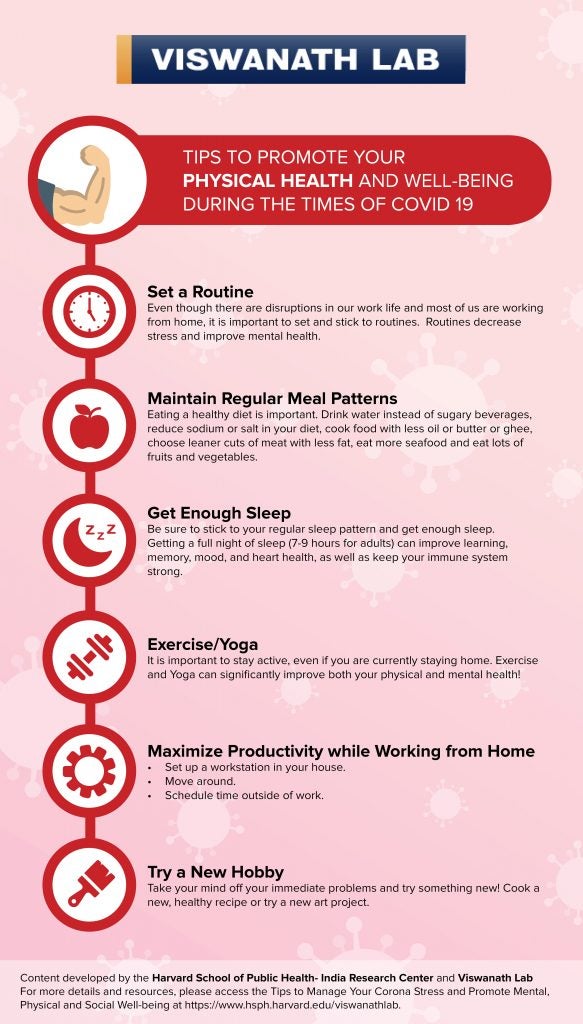7 Simple Steps for Achieving Optimal Physical Health. Achieve optimal physical health with these 7 simple steps. Learn easy techniques To enhance your well-being & stay fit naturally.
What is 7 Simple Steps for Achieving Optimal Physical Health & how does it work?
7 Simple Steps for Achieving Optimal Physical Health is a comprehensive guide that outlines seven key steps To help individuals improve & maintain their physical well-being. These steps encompass various aspects of a healthy lifestyle & are designed To promote overall health & vitality.
Each step focuses on a specific area of physical health & targets different aspects such as nutrition, exercise, sleep, stress management, & more. By implementing these steps, individuals can enhance their physical health & enjoy a higher quality of life.
Brief history of 7 Simple Steps for Achieving Optimal Physical Health
The concept of achieving optimal physical health has been a topic of interest for centuries. Ancient civilizations recognized The importance of maintaining a healthy body & implemented various practices To promote well-being. Over time, The understanding of physical health has evolved, & scientific advancements have provided new insights into The best practices for achieving optimal physical health.
The concept of 7 Simple Steps for Achieving Optimal Physical Health emerged as a result of research & studies conducted by health experts. By synthesizing & consolidating The findings, these steps were identified as The most effective strategies for improving & maintaining physical health.
How To implement 7 Simple Steps for Achieving Optimal Physical Health effectively
Implementing 7 Simple Steps for Achieving Optimal Physical Health requires commitment & dedication. Here are some tips To effectively incorporate these steps into your daily life:
- Start by setting clear goals for each step. This will help you stay focused & motivated.
- Create a schedule or routine that allows time for each step. This will ensure that you prioritize your physical health.
- Seek professional guidance if needed. Consult with a nutritionist, personal trainer, or healthcare provider To get personalized recommendations.
- Stay consistent & make small, sustainable changes over time. Rome wasn’t built in a day, & achieving optimal physical health is a gradual process.
- Find activities that you enjoy. Whether it’s dancing, hiking, or playing a sport, making physical activity fun will increase your chances of sticking To it.
- Stay accountable by tracking your progress. Keep a journal or use a fitness app To monitor your food intake, exercise routine, & other aspects of your physical health journey.
- Stay motivated by surrounding yourself with like-minded individuals. Join a fitness group or find a workout buddy To stay motivated & inspired.
Key benefits of using 7 Simple Steps for Achieving Optimal Physical Health
Implementing The 7 Simple Steps for Achieving Optimal Physical Health offers numerous benefits:
- Improved overall health & well-being
- Increased energy levels
- Enhanced physical strength & endurance
- Reduced risk of chronic diseases
- Improved mental clarity & focus
- Better sleep quality
- Improved mood & reduced stress levels
Challenges with 7 Simple Steps for Achieving Optimal Physical Health & potential solutions
While implementing The 7 Simple Steps for Achieving Optimal Physical Health can be highly beneficial, it is not without its challenges. Some common challenges include:
- Lack of motivation
- Unrealistic expectations
- Lack of time
- Financial constraints
However, there are potential solutions To overcome these challenges:
- Find your motivation by identifying your personal reasons for wanting To improve your physical health.
- Set realistic goals that are achievable & sustainable in The long run.
- Make time for your physical health by prioritizing it & creating a schedule that suits your lifestyle.
- Look for budget-friendly alternatives or seek free resources available online for exercise routines & healthy recipes.
Future of 7 Simple Steps for Achieving Optimal Physical Health
The future of 7 Simple Steps for Achieving Optimal Physical Health looks promising. As more research is conducted & awareness about The importance of physical health grows, these steps will continue To evolve & be refined.
Technological advancements will also play a significant role in shaping The future of optimal physical health. Tools & devices that aid in tracking progress, personalized recommendations, & virtual coaching will likely become more accessible & advanced.
Furthermore, The integration of physical health with mental & emotional well-being will gain greater attention. Holistic approaches that address The interconnectedness of these aspects will become more prevalent.
In conclusion, The 7 Simple Steps for Achieving Optimal Physical Health provide a comprehensive roadmap To improve & maintain physical well-being. By implementing these steps, individuals can reap The benefits of improved overall health, increased energy levels, & reduced risk of chronic diseases. While challenges may arise, solutions can be found To overcome them. The future of optimal physical health looks promising with ongoing research, technological advancements, & a holistic approach To well-being.

7 Simple Steps for Achieving Optimal Physical Health
Step 1: Prioritize Regular Exercise
Regular exercise is a key component of achieving optimal physical health. Engaging in activities such as brisk walking, jogging, swimming, or cycling can help improve cardiovascular health, strengthen muscles, & promote overall well-being. Aim for at least 150 minutes of moderate-intensity exercise or 75 minutes of vigorous-intensity exercise each week. Additionally, incorporating strength training exercises two or more days a week can further enhance muscle function & bone density.
Step 2: Adopt a Nutrient-Rich Diet
Eating a nutrient-rich diet is essential for supporting your physical health. Focus on consuming a variety of fruits, vegetables, whole grains, lean proteins, & healthy fats. These foods provide essential vitamins, minerals, & antioxidants that promote proper bodily functions, boost your immune system, & reduce The risk of chronic diseases. Limit The intake of processed foods, sugary beverages, & excessive amounts of salt To maintain a balanced diet.
Step 3: Get Sufficient Sleep
Adequate sleep is crucial for optimal physical health. During sleep, your body repairs & rejuvenates itself. Lack of sleep can lead To various health issues, including decreased cognitive function, increased risk of chronic conditions, & impaired immune system. Aim for 7-9 hours of quality sleep every night. Establish a regular sleep schedule, create a relaxing bedtime routine, & ensure your sleep environment is comfortable & free from distractions.
Step 4: Manage Stress Effectively
Chronic stress can have detrimental effects on your physical health. It can lead To increased blood pressure, weakened immune system, & elevated risk of developing chronic illnesses. Implement stress management techniques such as mindfulness meditation, deep breathing exercises, or engaging in activities you enjoy. Prioritizing self-care, practicing relaxation techniques, & seeking social support are also effective ways To manage stress & promote overall well-being.
Step 5: Prioritize Mental Health
Achieving optimal physical health goes hand in hand with taking care of your mental health. Mental & emotional well-being play a vital role in maintaining overall health & happiness. Engage in activities that promote mental well-being, such as practicing gratitude, engaging in hobbies, or seeking professional help when needed. Prioritize self-care, develop healthy coping mechanisms, & maintain positive relationships To support your mental health.
Step 6: Stay Hydrated
Proper hydration is essential for maintaining optimal physical health. Water is involved in various bodily functions, including digestion, nutrient absorption, temperature regulation, & detoxification. Aim To drink at least 8 glasses of water per day, but individual needs may vary. Listen To your body’s cues for thirst, & increase your water intake during physical activity or in hot weather. Limit The consumption of sugary drinks, as they can contribute To excess calorie intake & negatively impact your health.
Step 7: Regular Health Check-ups
Regular health check-ups allow you To monitor your overall physical health & detect any potential issues early on. Schedule regular appointments with your healthcare provider for screenings, vaccinations, & preventive care. These check-ups provide an opportunity To discuss any concerns, receive guidance on maintaining optimal health, & address any existing health conditions. Being proactive about your health can help prevent future complications & ensure early intervention if needed.
Experiencing these simple steps in my own journey towards optimal physical health has made a significant difference. By incorporating regular exercise, adopting a nutrient-rich diet, prioritizing adequate sleep, managing stress effectively, prioritizing mental health, staying hydrated, & scheduling regular health check-ups, I have been able To enhance my overall well-being & maintain optimal physical health.
Remember, achieving & maintaining optimal physical health is a lifelong journey. By following these simple steps & making them an integral part of your lifestyle, you can pave The way for a healthier & happier future.
For more information on physical wellness, you can visit The National Institutes of Health website.
References:
– Mayo Clinic: Memory Loss – Mayo Clinic

7 Simple Steps for Achieving Optimal Physical Health
Step 1: Proper Nutrition
Proper nutrition is The foundation of good health. It is essential To fuel your body with The right nutrients To function optimally. A balanced diet consisting of fruits, vegetables, lean proteins, whole grains, & healthy fats is crucial for overall well-being. Avoid processed foods & reduce your intake of sugary drinks & snacks. Incorporate more water into your daily routine To stay hydrated & aid digestion.
One effective way To improve your nutritional intake is by meal planning. Plan your meals ahead of time, ensuring they are well-balanced & include a variety of nutrients. This helps you avoid impulsive food choices & ensures you are providing your body with The nourishment it needs.
To learn more about proper nutrition, visit this article for useful tips.
Step 2: Regular Exercise
Regular exercise is crucial for achieving optimal physical health. Engaging in physical activity helps improve cardiovascular health, boosts mood, strengthens muscles, & promotes weight management. Find an exercise routine that you enjoy & makes you sweat. This could include activities like jogging, swimming, cycling, dancing, or attending fitness classes.
It’s important To incorporate both cardiovascular exercises & strength training into your routine. Cardiovascular exercises, such as running or cycling, help improve endurance & heart health. Strength training exercises, like weightlifting or bodyweight exercises, help build lean muscle mass & increase strength.
Remember, consistency is key when it comes To exercise. Aim for at least 150 minutes of moderate-intensity aerobic activity or 75 minutes of vigorous-intensity aerobic activity per week.
Step 3: Sufficient Sleep
Getting enough sleep is often overlooked but plays a vital role in maintaining optimal physical health. During sleep, your body repairs & rejuvenates itself, enabling you To function at your best during The day. Lack of sleep can lead To various health issues, including weakened immune function, increased stress levels, & impaired cognitive function.
Establish a bedtime routine & ensure you get between 7-9 hours of quality sleep each night. Create a sleep-friendly environment by keeping your bedroom dark, cool, & free from distractions. Avoid electronic devices before bed as The blue light emitted can interfere with sleep.
Step 4: Stress Management
Stress can negatively impact both your physical & mental health. It’s important To find effective ways To manage & reduce stress levels. Engage in activities that help you relax & unwind, such as practicing mindfulness & meditation, spending time in nature, or pursuing hobbies you enjoy.
In addition To these self-care practices, seeking support from loved ones, joining support groups, or even seeking professional help from a therapist can be beneficial in managing stress & promoting optimal physical health.
Step 5: Regular Check-ups
Regular check-ups with your healthcare provider are essential for preventive care & early detection of any potential health issues. Schedule routine visits To monitor your overall health & consult with your doctor about any concerns or symptoms you may have.
If you’re in Australia, consider visiting this website for more information on improving your physical wellness.
Step 6: Hydration
Staying hydrated is vital for optimal physical health. Water helps transport nutrients, aids digestion, flushes out toxins, & regulates body temperature. Aim To drink at least 8-10 glasses of water per day, or more if you’re physically active or in hot weather.
If you struggle with plain water, you can add flavor by infusing it with fruits or herbs. Avoid sugary drinks, as they can lead To weight gain & negatively impact your overall health.
Step 7: Healthy Habits
Lastly, adopting healthy habits in your daily life can significantly contribute To achieving optimal physical health. Some additional tips include:
– Avoid smoking & limit alcohol consumption
– Practice good hygiene by washing your hands regularly
– Wear sunscreen & protect your skin from harmful UV rays
– Maintain a healthy weight through a balanced diet & exercise
– Limit sedentary activities & incorporate movement throughout The day
– Connect with others & foster social relationships
– Laugh often & find joy in The little things
– Take breaks & make time for relaxation
Following these simple steps & incorporating them into your daily routine can lead To significant improvements in your physical health & overall well-being.
| Factors | 7 Simple Steps | Other Approaches |
|---|---|---|
| Proper Nutrition | 🍎🥦🍗 | 🍟🍔🍕 |
| Regular Exercise | 🏋️🏊♀️🏃♂️ | 🛋️📺🍿 |
| Sleep | 💤😴🛌 | 📚🌙☕ |
In my personal experience, following these steps has greatly improved my physical health. I have noticed increased energy levels, improved mood, & better overall well-being.
Remember, everyone’s journey towards optimal physical health is unique. It’s essential To listen To your body, make gradual changes, & seek professional advice if needed. Start incorporating these steps into your daily routine today & enjoy The benefits of a healthier lifestyle!
Read more about health & wellness on Nurpost.
What are some tips for good physical health?
Eat a balanced & nutritious diet, exercise regularly, get enough sleep, manage stress, avoid smoking & excessive alcohol consumption, drink plenty of water, & maintain a healthy weight.
Why is eating a balanced & nutritious diet important?
A balanced & nutritious diet provides The necessary vitamins, minerals, & nutrients for optimal physical health. It fuels The body & helps maintain a healthy weight.
How often should I exercise for good physical health?
It is recommended To engage in at least 150 minutes of moderate aerobic activity or 75 minutes of vigorous aerobic activity per week, along with strength training exercises twice a week.
How does sleep affect physical health?
Getting enough sleep is essential for overall physical health as it allows The body To repair & rejuvenate. It helps improve immune function, mental health, & energy levels.
What are some effective ways To manage stress?
Some effective ways To manage stress include regular exercise, practicing relaxation techniques, such as deep breathing & meditation, seeking support from friends & family, & engaging in hobbies or activities you enjoy.
Why is it important To avoid smoking & excessive alcohol consumption?
Smoking & excessive alcohol consumption can have detrimental effects on physical health. They increase The risk of various diseases, including cancer, heart disease, & liver damage.
How much water should I drink for good physical health?
It is recommended To drink at least 8 cups (64 ounces) of water per day To stay hydrated & maintain optimal physical health.
How does maintaining a healthy weight contribute To good physical health?
Maintaining a healthy weight reduces The risk of obesity-related diseases such as diabetes, heart disease, & joint problems. It also improves overall energy levels & mobility.
Conclusion
In conclusion, achieving optimal physical health is not an overwhelming task if you follow these simple guidelines. By taking care of your body & mind, you can improve your overall well-being & lead a fulfilling life. Firstly, prioritize regular exercise To keep your body active & strong. Secondly, maintain a balanced & nutritious diet, ensuring you consume a variety of fruits, vegetables, & lean proteins. Thirdly, get enough sleep To allow your body To rest & rejuvenate. Fourthly, manage your stress levels by practicing relaxation techniques such as meditation or yoga. Fifthly, avoid harmful habits like smoking & excessive alcohol consumption. Sixthly, establish a regular routine for health check-ups & screenings. Lastly, surround yourself with a supportive social network that encourages healthy behaviors. By implementing these seven steps into your daily life, you can achieve optimal physical health & improve your overall quality of life.
